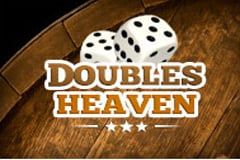7 Heaven
SkillonNet


Get up to 600% + 60 Free Spins
Rating
Gold Award
Get up to 600% + 60 Free Spins
Payment Methods
Amex, Bank Wire, Bitcoin, Diners club international, Easyeft, Mastercard, Paysafecard, Visa, Discover, Interac

Get a 280% Match Bonus up to $7,500 + 80 Free Spins
Rating
Get a 280% Match Bonus up to $7,500 + 80 Free Spins
Payment Methods
Amex, Fastbanktransfer, Giropay, Ideal, Mastercard, Neteller, Paysafecard, Skrill, Ukash, Usemybank

Get 300% up to $3000 + 50 Free Spins
Rating
Silver Award
Get 300% up to $3000 + 50 Free Spins
Payment Methods
Bank Wire, Bankcontact Mistercash, Dotpay, Euteller, Giropay, Ideal, Mastercard, Multibanco, Neosurf, Neteller

Get 250% up to $2500 Casino Bonus + 50 FS for Buffalo Ways
Rating
Silver Award
Get 250% up to $2500 Casino Bonus + 50 FS for Buffalo Ways
Payment Methods
Bank Wire, Bitcoin, Mastercard, Visa, Flexepin, Litecoin, Tether

Sign up and get 500% Match + 25 Free Spins
Rating
Gold Award
Sign up and get 500% Match + 25 Free Spins
Payment Methods
Bitcoin, Diners club international, Mastercard, Visa, Discover, Litecoin, BitcoinCash, MuchBetter, American Express, eZeeWallet

Get 500% Welcome Bonus up to $7,500 + 150 FS
Rating
Silver Award
Get 500% Welcome Bonus up to $7,500 + 150 FS
Payment Methods
Amex, Bitcoin, Mastercard, Visa, Discover, Paper Check, Ethereum, Interac, Litecoin, BitcoinCash










So many games – not only in casinos, but also in the board games played by children – use the simple action of rolling two dice as a central part of their gameplay. Whether you’re trying to roll a hard eight at the craps table, getting an extra move in Monopoly, or doubling your dice in backgammon, rolling doubles in almost always something to celebrate.
Perhaps that’s the feeling that SkillOnNet was trying to recreate when they made their virtual dice game known as Doubles Heaven. In this game, the only goal you have is to roll doubles as frequently as possible. But if you’re willing to take risks, you might actually hope to delay those pairs for a while, as it’s possible to build up to some jackpot-like payouts if you hit the right combinations at the right times.


Get up to 600% + 60 Free Spins
Rating
Gold Award
Get up to 600% + 60 Free Spins
Payment Methods
Amex, Bank Wire, Bitcoin, Diners club international, Easyeft, Mastercard, Paysafecard, Visa, Discover, Interac

Get a 280% Match Bonus up to $7,500 + 80 Free Spins
Rating
Get a 280% Match Bonus up to $7,500 + 80 Free Spins
Payment Methods
Amex, Fastbanktransfer, Giropay, Ideal, Mastercard, Neteller, Paysafecard, Skrill, Ukash, Usemybank

Get 300% up to $3000 + 50 Free Spins
Rating
Silver Award
Get 300% up to $3000 + 50 Free Spins
Payment Methods
Bank Wire, Bankcontact Mistercash, Dotpay, Euteller, Giropay, Ideal, Mastercard, Multibanco, Neosurf, Neteller

Get 250% up to $2500 Casino Bonus + 50 FS for Buffalo Ways
Rating
Silver Award
Get 250% up to $2500 Casino Bonus + 50 FS for Buffalo Ways
Payment Methods
Bank Wire, Bitcoin, Mastercard, Visa, Flexepin, Litecoin, Tether

Sign up and get 500% Match + 25 Free Spins
Rating
Gold Award
Sign up and get 500% Match + 25 Free Spins
Payment Methods
Bitcoin, Diners club international, Mastercard, Visa, Discover, Litecoin, BitcoinCash, MuchBetter, American Express, eZeeWallet

Get 500% Welcome Bonus up to $7,500 + 150 FS
Rating
Silver Award
Get 500% Welcome Bonus up to $7,500 + 150 FS
Payment Methods
Amex, Bitcoin, Mastercard, Visa, Discover, Paper Check, Ethereum, Interac, Litecoin, BitcoinCash
Doubles Heaven is a fairly simple game, at least in terms of what you need to know in order to play. To start, you’ll need to place a bet; as a default, you’ll see bets from €1 to €300 available, with the game playing the same way regardless of how much you bet. Once you’ve chosen your amount, just press “play,” and the action will begin.
Two dice will be rolled on screen (on the top of a wooden barrel graphic that gives the game a bit of an “old west” feel). A number of possible outcomes might occur, each of which could take the game in a different direction.
The worst possible outcome is rolling a seven. When this happens – either now or at any time later in the game – you immediately lose, and all of your bets are lost. Much better for the player is rolling two of the same number. On this initial roll, this will pay out “for one” at odds based on the pair that you rolled. In other words, a pair of ones will pay 1x your bet, twos will pay 2x, and so on, up to sixes paying 6x.
All other non-doubles rolls leave the player with the choice of ending the round by surrendering their bet, or making a second bet to try again to roll doubles. If you’re willing to make the second bet, the dice are rolled again. Once again, a seven immediately loses, while any other non-pair bumps the game up a level, asking you to either surrender (ending the round) or pay another bet to roll again.
What changes each time you pay for an additional roll are the potential winnings you’ll be playing for. The prizes go up each time, making it possible to score bigger and bigger wins. For instance, on your second roll, a pair of ones will earn you 2x, while any other pair will earn you 4x.
But it’s not quite that simple. Since you’ll have already made two bets at this point, that pair of ones will only allow you to break even (remember, we’re playing with “for one” odds, like in a slot machine, which means the money you’ve put in to play is not returned when you win). That might seem like an anticlimactic way to end the round, so the game does give you the option of either taking your even money payout, or continuing the game by making another bet (essentially, the same as rolling a non-double other than a seven).
Each time you push your luck by throwing in another bet, the payouts go up, but so do the chances of only getting those “money back” payouts. This culminates in the 6th and final round. If you make it this far, rolling a pair of ones through fives will earn you 6x – just enough to break even for the entire game. But roll double sixes, and you’ll get a massive 100x payout. All other rolls will end the game, with all bets being lost.
That can be a bit hard to follow without a chart, as there are many different payouts at different points in this game. Here’s a rundown of how the payouts change on each round:
That’s all there is to the game. At the end of each round, you can press the new game button to start again, and you’ll have the option of changing your bet if you want to play for more or less.
Obviously, there’s nothing that you can do in order to influence how the dice will roll in this game. But there are still some decisions to make in Doubles Heaven – in particular, you’ll have to choose whether or not to continue after a given roll, or stop the game and start over again.
Unfortunately, there isn’t really any information provided by SkillOnNet to let us know what the theoretical house edge is in this game, even with whatever perfect play might be. And the game itself is rather complex to analyze: the combinations and possibilities are varied enough that we’d be lying if we tried to give you a number on the game as a whole.
One thing we can say is that the numbers suggest that you should take the additional bets rather than surrender. The reasoning behind this is rather simple: if you look at just the player return for each individual roll (ignoring what might happen on future rounds), the player does better and better on each additional round. Remember, the payouts are constantly going up, and it only costs you exactly one bet to take the next roll; in the later rounds, in fact, the player has a clear edge by playing again. Here’s how it breaks down on each round:
While those last rounds do have a player advantage (a massive one in the final round), you shouldn’t get too excited about those amazing numbers. Remember, in order to get to that final roll, you’ll already have to have lost five bets – meaning that on average, you’ll still come out behind on average should you get to this point. Still, it’s obvious that this is way better than not taking the next bet, considering you do have an edge on the final two rounds.
The RTP on earlier rounds is probably also a bit better than we’ve suggested here, as playing them gives you the opportunity to potentially get to those later rounds. Still, our guess is that this game has a rather substantial house edge – something that is typically true of “casual” games like these.
Overall, Doubles Heaven is an interesting game, but not a particularly great one. While the ability to move up from round to round and press your luck is a reasonably fun feature, the payouts aren’t particularly impressive other than the one jackpot at the end of the line, and most rounds end with the player losing. There isn’t that much player interaction, either – other than the one surrender decision each round, it’s just a matter of clicking a button and seeing how the dice turn up.
The result is a game that looks complex and interesting at first glance, but ends up being pretty pedestrian once you actually play for a while. It’s unique enough that you might want to give it a look, but we recommend trying it in play money mode first, as you might quickly get tired of it and want to look to other options for real money play.